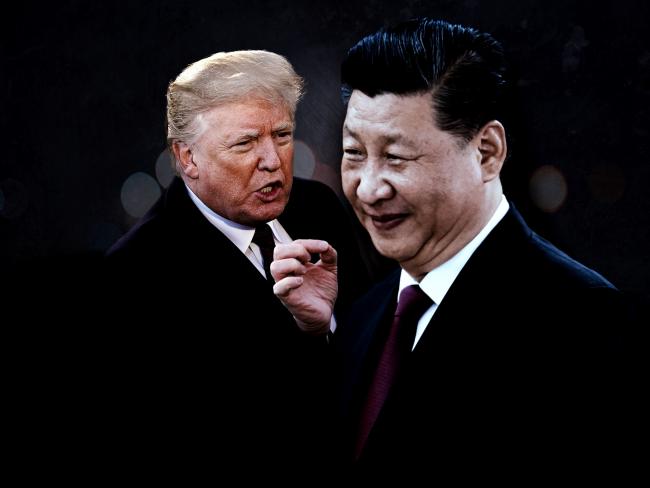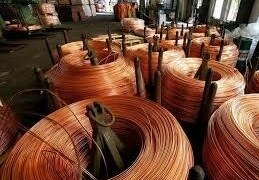 © Bloomberg. Presidents Trump and Xi Photographer: Bloomberg Daybreak/Bloomberg
© Bloomberg. Presidents Trump and Xi Photographer: Bloomberg Daybreak/Bloomberg2/2
(Bloomberg) — President Donald Trump reported “big progress” in trade talks with his Chinese counterpart Xi Jinping, providing an optimistic start to what could be a make-or-break year for ties between the world’s two largest economies.
The two presidents spoke at length by telephone Saturday, with each expressing satisfaction with trade talks initiated after their meeting earlier this month in Argentina. Trump said in a tweet that negotiations were “moving along very well” toward a comprehensive deal, while Chinese state media said Xi believed both sides wanted “stable progress.”
The call — coming just three days before the 40th anniversary of the U.S.’s establishment of formal ties with China — underscored the stakes for talks. Trump’s efforts to challenge Beijing on trade over the past year have dredged up a wide range of grievances and fueled concerns that the relationship is heading into a prolonged period of confrontation.
Xi said ties had reached a “vital stage” on the anniversary and the world expected the two sides to work together, according to the official Xinhua News Agency. His remarks were followed up by a Chinese foreign ministry statement saying that the relationship had “traversed a tortuous journey” to the milestone and were “standing at a new historical starting point.”
The two leaders spoke as a U.S. trade delegation prepares to travel to Beijing for talks slated for the week of Jan. 7, Bloomberg News reported Wednesday, citing two people familiar with the matter. The exchanges suggest that months of market-rattling brinkmanship may be easing, and that the two leaders are following through on pledges made at their Dec. 1 dinner meeting in Buenos Aires.
While China has recently taken steps that might help address U.S. complaints about trade barriers and intellectual property theft, there was little to suggest that Xi was considering fundamental changes along the lines demanded by the Trump administration. China’s defiant response last month to U.S. efforts to extradite Huawei Technologies Co. executive Meng Wanzhou from Canada have highlighted deeper strategic suspicions between the two sides.
Negotiators have begun fleshing out a possible deal that includes ensuring greater access for foreign firms to China’s financial sector, but Trump may be overstating how close the countries are to agreement, the Wall Street Journal reported late Saturday, citing people familiar with the negotiations.
The U.S. formally established ties with the People’s Republic of China on Jan. 1, 1979, cementing a rapprochement that began seven years earlier with President Richard Nixon’s landmark visit to Beijing. Ties have endured several frosty periods, most notably when the U.S. tried to isolate China for its violent crackdown on Tiananmen Square (NYSE:) protesters in 1989.
It was unclear who initiated the call between Trump and Xi. The White House, which typically doesn’t release details of Trump’s calls with foreign leaders beyond what the president reveals himself, didn’t respond to a request for comment.
Read more: China Heads Into Trade Talks Bracing for More U.S. Demands
U.S. stocks, beaten down recently by concerns about an escalating tariff war, got a boost from news of the upcoming talks in Beijing. The gathering will be the first face-to-face discussion between the two sides since Trump and Xi agreed to a 90-day truce in Buenos Aires.
Deputy U.S. Trade Representative Jeffrey Gerrish will lead the delegation, which also will include Treasury Under Secretary for International Affairs David Malpass, according to the people, who spoke on the condition of anonymity. U.S. Trade Representative Robert Lighthizer, whom Trump named to be in charge of the China talks, wasn’t scheduled to join the delegation.
QuickTake: How ‘Made in China 2025’ Frames Trump’s Trade Gripes
Xi said Saturday that officials from both countries have been working actively and hopes the teams can meet each other halfway, Xinhua reported.
Beijing last week announced a third round of tariff cuts, saying it would lower import taxes on more than 700 goods from Jan. 1 as part of its efforts to open up the economy and lower costs for domestic consumers.
Trump, meanwhile, has agreed to put on hold a scheduled increase in tariffs on some $200 billion in annual imports from China while the negotiations take place. He’s pushing the Asian nation to reduce trade barriers and stop the alleged theft of intellectual property. Beijing so far has pledged to resume buying U.S. soybeans and to at least temporarily lower retaliatory tariffs on U.S. autos.
The Global Times, a nationalist newspaper published by China’s Communist Party, said in an editorial Sunday that the call between Trump and Xi was “good news for sure.” Still, the paper sounded a note of caution.
“It is not clear whether the U.S. is positioning China as a strategic competitor or a fair trade partner,” the newspaper said. “It is time for the U.S. government to realize that the negotiations with China should be based on reality. China will not accept any terms which are counter to the general direction of China’s reform and opening up, or that impair China’s national interests.”
Source: Investing.com




























